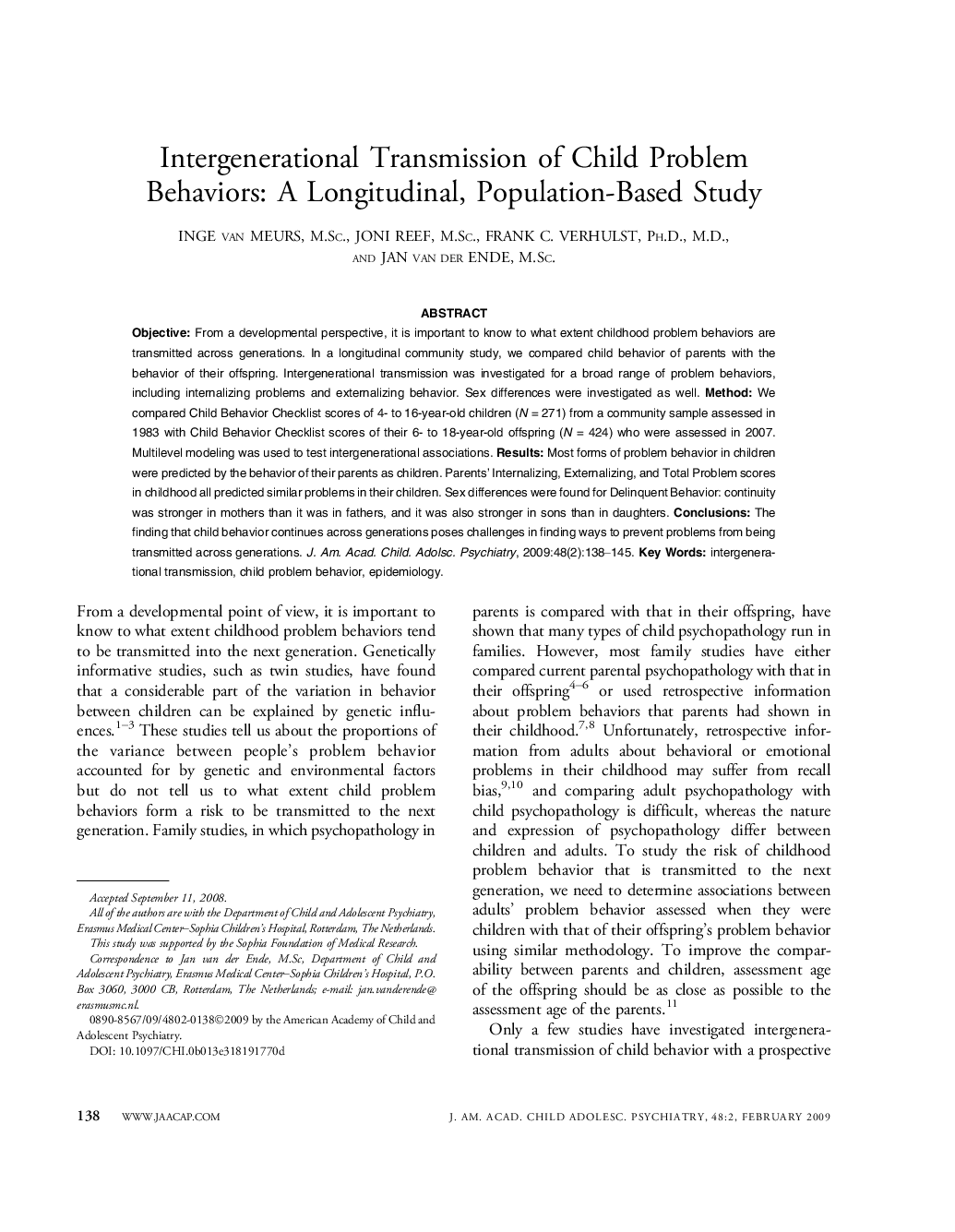| Article ID | Journal | Published Year | Pages | File Type |
|---|---|---|---|---|
| 325600 | Journal of the American Academy of Child & Adolescent Psychiatry | 2009 | 8 Pages |
ObjectiveFrom a developmental perspective, it is important to know to what extent childhood problem behaviors are transmitted across generations. In a longitudinal community study, we compared child behavior of parents with the behavior of their offspring. Intergenerational transmission was investigated for a broad range of problem behaviors, including internalizing problems and externalizing behavior. Sex differences were investigated as well.MethodWe compared Child Behavior Checklist scores of 4- to 16-year-old children (N = 271) from a community sample assessed in 1983 with Child Behavior Checklist scores of their 6- to 18-year-old offspring (N = 424) who were assessed in 2007. Multilevel modeling was used to test intergenerational associations.ResultsMost forms of problem behavior in children were predicted by the behavior of their parents as children. Parents' Internalizing, Externalizing, and Total Problem scores in childhood all predicted similar problems in their children. Sex differences were found for Delinquent Behavior: continuity was stronger in mothers than it was in fathers, and it was also stronger in sons than in daughters.ConclusionsThe finding that child behavior continues across generations poses challenges in finding ways to prevent problems from being transmitted across generations.
